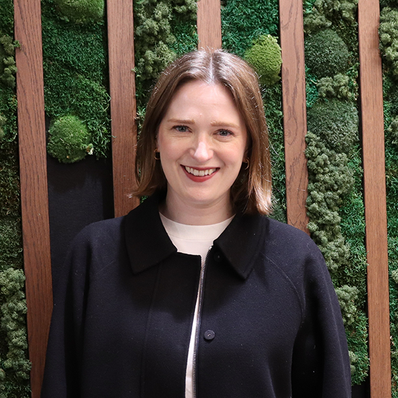The potential impact of switching off 2G in the UK

While the UK has started the deployment of 5G networks, the older 2G networks will inevitably face switch off (or sunset) at some point. This is despite being relied on by the elderly, users in rural locations and numerous machine-to-machine (M2M) applications, such as many smart meters. A report by Real Wireless, which was produced for UK Spectrum Policy Forum, which looks at the implications and impacts of switching off the 2G networks that are still widely relied upon, despite dating from the 1990s.
The report, Switching off 2G, highlights the potential impacts and issues associated with switching off the three 2G networks in operation in the UK. With potential impacts for the elderly, rural users and M2M applications, the need for 2G services is likely to continue into the 2030s the report concludes.
The report identifies key 2G use cases, alternative technologies that could replace 2G networks, migration issues and potential options to consider to reduce the impact of migration together with lessons learned in overseas 2G sunsets. The report also agrees with the general industry view that 3G is likely to be turned off before 2G – meaning that 3G networks will not replace 2G.
The full report can be found at the bottom of this page.
Impact on older generations and tourists
The report highlights that 2G networks are still used by older generations who don’t want a smartphone with a touch screen, tourists coming to the UK, users in some rural areas where only 2G coverage is available.
While migrating voice users may be relatively simple and can be completed with an integrated marketing and awareness campaign in a similar way to the switching off of the analogue television services in 2007-12, migrating M2M communications is much more complex.
Impact on smart meters
The smart meter rollout programme is currently installing around one million meters per quarter and the installation programme is expected to be completed in 2024. These meters are planned to have a 15-year life and currently rely on 2G/3G networks for communications, meaning if the deployment programme continues to deploy meters utilising 2G/3G connectivity then 2G services will be needed until at least 2039.
Impact on emergency calling by vehicles
The EC mandated eCall system that connects vehicles to national emergency services in the event of an airbag deployment also relies on 2G/3G networks. The eCall system has been mandatory for every new ‘type approved car’ in the EC since April 2018. Assuming average car life expectancy of approximately 15-years, these vehicles purchased today will rely on the 2G/3G networks until the mid-2030s at least.
Tony Lavender, chair of the Spectrum Policy Forum Steering Board commented: “We sometimes focus on technology without fully understanding the impact on services people rely on. Among other things, 2G enables smart metering and the mobile phones used by many vulnerable people in society. We need to think through the alternatives for these services before switching them off. This report was commissioned by the SPF to highlight to Government, Ofcom and operators just what services will be affected, and the potential implications of a premature switch-off.”
John Okas, Real Wireless Strategic Wireless expert commented: “With so many applications and at-risk users still reliant on the ageing 2G networks, including critical national infrastructure, it’s clear that the switch off and migration is something that will need careful and considered management along with long term planning. It is also possible that new models could emerge whereby a single 2G network evolves to serve all of the M2M use cases – including smart meters and eCall. With the launch of this report Real Wireless and the SPF hope to provide insight to the Government, Ofcom and other stakeholders to help inform their future strategic planning.”
The UK Spectrum Policy Forum is an industry-led sounding board for the UK Government and Ofcom for future policy formulation. Real Wireless, the world’s leading independent wireless advisory firm, has developed the comprehensive report, for the Spectrum Policy Forum, that looks at the impacts of switching off, or ‘sunsetting’ the UK’s 2G networks.
ENDS
Notes to editors
About UK Spectrum Policy Forum (SPF)
Set up at the request of government and Ofcom the Spectrum Policy Forum (SPF) act as a pro-active industry-led ‘sounding board’ to UK Government and Ofcom on future policy and approaches on spectrum and a cross-industry ‘agent’ for promoting the role of spectrum in society and the maximisation of its economic and social value to the UK. We do this by exchanging news and views on developments in using spectrum, drawing on our industry expertise from around the world.
Media Contact: Harri Turnbull – [email protected] - 020 7331 2011
About Real Wireless
Real Wireless is the world’s leading independent wireless advisory firm. Its network of experts includes engineers, physicists, economists, security advisors, business strategists and deployment specialists. Real Wireless clients benefit from a comprehensive portfolio of specialists and custom tools that analyse radio network performance, techno-economic impact and the business model implications of wireless systems. With this unmatched resource Real Wireless advises across the eco system – covering the industry and end users, spanning businesses to governments, mobile operators, regulators and technology vendors - on every aspect of wireless systems.
Real Wireless experts help clients to understand, select and deploy technology according to need; we deliver truly independent advice as we are not affiliated with any association, company or proprietary standard. That is why, with 5G on the horizon, Real Wireless is best placed to guide and advise businesses on the choices and opportunities next generation communications systems will bring.




